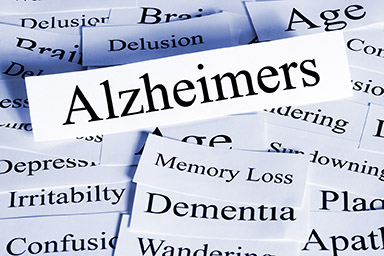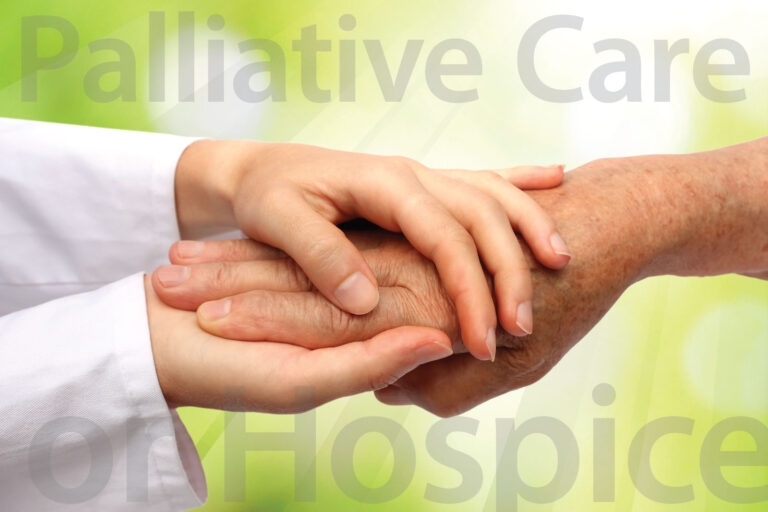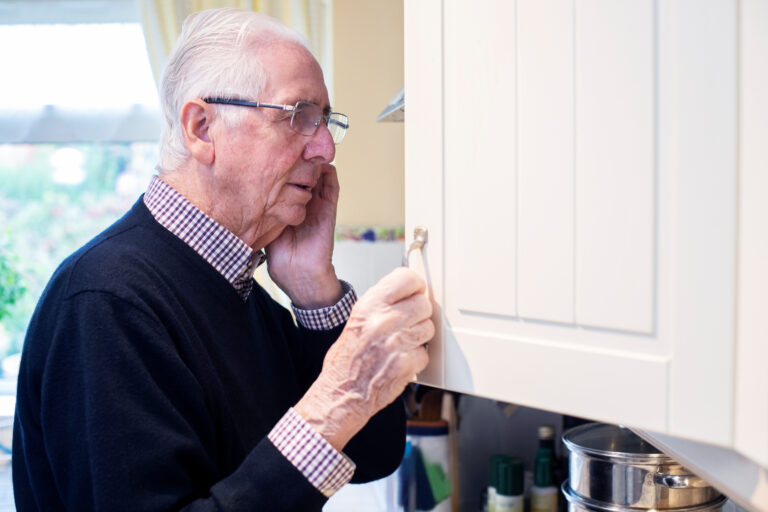Learning that a person you hold dear has received a cancer diagnosis is universally crushing. Even when you’re not a patient yourself, it’s an instinct to drop everything and provide cancer care, comfort, and reassurance to relieve just a fraction of the pain and anxiety they’re feeling.
On practical and emotional levels, every aspect of family life is about to change. Over 1.7 million people in the U.S. had cancer in 2019, according to the CDC. For each of those, countless loved ones had to cope with profoundly altered circumstances as they stepped up to provide support.
The most comfortable choice for many cancer patients is to stay at home with their loved ones. Familiarity and family connections can be sources of peace during a difficult time. But caregivers need support too, and many often forgo their own well-being to bear the pressure of providing cancer support.
As the disease progresses, so too can the exhaustion, burnout, complexity, and emotional demands of caring for cancer patients in your family.
Seeking help and attending to your own health needs as a caregiver isn’t a sign of weakness or selfishness. It’s an essential part of providing for the people you love when they truly need you. This article will break down how to deal with cancer as a family member and provide home cancer care for a loved one without putting your own health at risk.
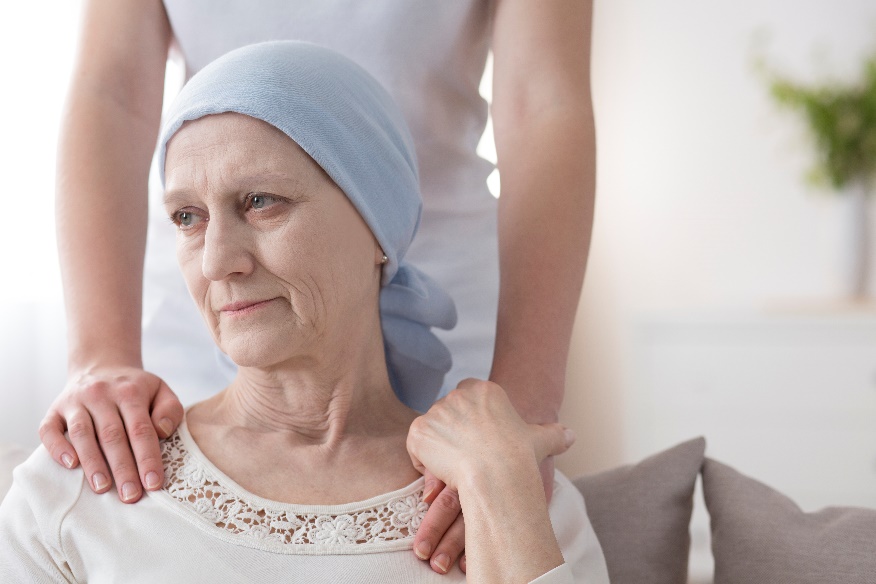
Recognizing cancer symptoms
Different types of cancers cause a range of symptoms that affect any and every part of the body. Coping with cancer looks and feels different for everyone who has it. Many symptoms can also occur as a result of non-cancerous conditions, so it’s essential to get any of the following ruled out as cancer symptoms early on.
Checking these symptoms will prevent unnecessary anxiety. It will also help your loved one’s physician catch cancer early in its development and improve the chances of successful treatment. Common cancer symptoms include:
As cancer progresses, these symptoms are likely to become more severe, and the added burden of the side effects of treatment can make caring for cancer patients much harder. Chemotherapy and radiation therapy target and kill cancer cells to reduce its impact, but they can also damage tissue around the cancer and cause a range of adverse effects, including:
- Anemia
- Appetite Loss
- Bleeding and bruising
- Cognitive issues like memory lapses or struggling to concentrate
- Constipation
- Delirium
- Diarrhea
- Fatigue and sleep issues
- Fertility issues
- Flu-like symptoms, including fever, shivering, and weakness
- Hair loss
- Infection
- Mouth and throat issues like difficulty swallowing
- Nausea
- Nerve problems including numbness or increased sensitivity
- Organ inflammation especially when receiving immunotherapy for certain cancers
- Pain
- Sexual health issues (such as erectile dysfunction following prostate cancer surgery)
- Skin and nail changes
- Swelling of the limbs (edema)
- Urinary and bladder Problems
- Vomiting
Cancer care and treatment are becoming more effective at helping people manage and recover from many types of cancer. However, depending on the type and stage of cancer, your loved one’s overall health, and how they respond to treatment, they may need round-the-clock end-of-life care. The symptoms of late-to-end-stage cancers can include:
- The need for near-constant assistance with every task due to prolonged, severe weakness
- Oral and appetite issues, including a reduced interest in food and decreasing ability to swallow pills and medicines, a persistently dry mouth, and mucus buildup at the back of the throat
- Extreme drowsiness, meaning that they may spend most of their day sleeping and struggle to wake up.
- Increased confusion, reduced concentration, and heightened restlessness.
- Sudden, jerking muscle movements.
- Cold, damp, blotchy skin, reduced circulation, and a faint, speedy, or irregular heartbeat
- Extreme breathing difficulties, including rattling breaths that are spaced between 10 and 30 seconds apart, tightening neck muscles to support breathing, and grunting during breaths
Caring For Cancer Patients In Your Family
At first, your loved one may not need much help to manage their cancer and may try to stay connected with their current way of life for as long as possible. They may even show frustration when offered help during cancer care. Your loved one is processing the burden of the disease and treatments on their body.
As the disease progresses and they become less and less able to conduct day-to-day life like they used to, their need for help will increase. They may need support with daily chores, personal hygiene, and food prep. Along with this, they’ll need to lean on you emotionally, facing their possible death while working through agonizing symptoms.

Helping A Loved One With Cancer Live Day To Day
Helping a person with cancer involves supporting them while they balance the physical and mental demands of treatment with maintaining their daily schedule.
There are, however, many ways you can alleviate cancer’s devastating impact, including:
- Taking on some of their chores: Taking care of housework and groceries can be draining and time-consuming for those living with cancer, and knowing that a family member has it covered can provide time to rest. It may also be difficult for them to remember or focus on responsibilities, so caring for cancer patients by organizing bills or preparing their children for school can help.
- Support them during treatment and cancer care: Make sure their medicine schedule is on your phone and that you attend appointments with them as much as possible while taking notes. Accompanying someone with cancer to appointments, checkups, and scans can help them maintain their active treatment in the knowledge that a loved one is helping them keep track.
- Step up for the people around them. If your loved one has children or a partner, their lives will also be upended, so try to help them maintain a sense of normalcy. Make sure kids are getting to soccer practice or sleepovers, and reach out to their partner to offer help. Considering outside help: Working with experienced palliative or hospice care nurses can alleviate the pain and challenges your loved one is facing while simultaneously easing your family’s burden. Sage Hospice takes pride in providing customized mobile palliative and hospice care for cancer patients to enrich their day-to-day lives as needed.
- Prep ready meals for them. Even if you’re not great at cooking, prepping nutritious, easy-to-eat meals like soups or salads gives your family member one less thing to think about. During chemotherapy and radiation therapy treatments, many people lose their appetites. Providing them with an easy source of nutrients can greatly support their recovery.
- Give them thoughtful gifts – in moderation: Thoughtful gifts, such as a knitted hat and scarf to keep them warm after chemotherapy hair loss, can help cancer patients feel comfortable and seen during cancer care. However, caring for cancer patients by showering them with gifts they don’t have the energy to use risks alienating them further from their usual routine.
- Keep their motivation up: Some days, your loved one will be too tired or sick to interact, but invite them out on short walks and catch-ups or come over and make them a cup of tea. This will help them feel more connected and motivated between their unavoidable slumps in mood and focus.
Providing Basic Safety During Cancer Home Care
For someone with cancer, home safety can be crucial, helping to prevent falls and accidents while providing reassurance that emergency measures are always nearby just in case.
Steps may include:
- Removing rugs, raised room dividers, and anything that risks a tumble.
- Helping them reorganize furniture to make moving between rooms as easy as possible.
- Removing hazards like exposed wiring, hanging light fixtures, and toxic substances from reach.
- Changing the lightbulbs to ensure that the house is well-lit.
- Checking every smoke alarm and fire extinguisher in the house.
- Possibly helping them install a fall-monitoring device or an emergency personal response system that can contact you, other loved ones, or emergency services at the touch of a button. Caring for cancer patients is as much about preventing further health problems as addressing current ones.
- Giving the patient a personal intercom, walkie-talkie, or baby monitor for easy communication during cancer care.
- Installing raised toilet seats and grab bars on either side of the bowl to facilitate easier bathroom visits, as well as placing non-skid mats in the bath/shower and on the bathroom floor to reduce the risk of falls.
- Placing carpet or safety grip on the stairs where necessary, and installing handrails on both sides of the stairs.
Keep in mind, in working with mobile nurses for cancer patients, they’ll advise you on the proper safety tips around your house given your set-up and the current capabilities of your loved one with cancer.
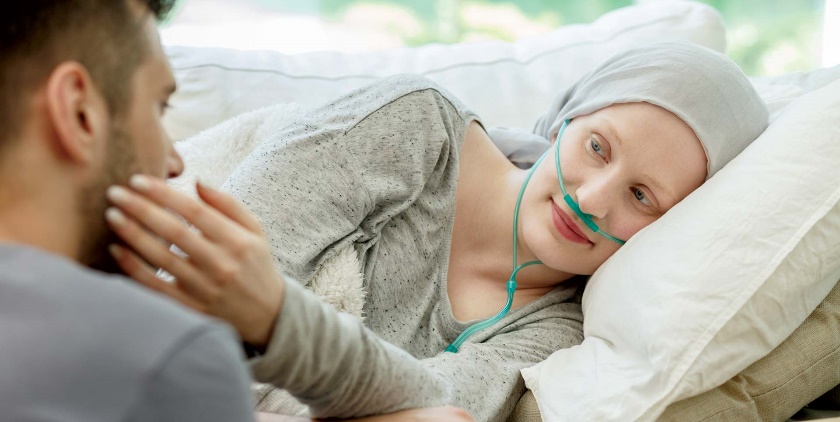
Communicating With Someone You Love Who Has Cancer
At any stage of cancer, communication can become extremely difficult amid the cloud of uncertainty that accompanies the disease, whatever the outlook. Sometimes, talking to someone while they work their way through cancer is more about knowing when not to communicate and where to create boundaries.
Terror, anger, and frustration are completely logical responses to life with cancer, but they can and do get easier as part of the right support network. Here’s how to talk to a loved one with cancer:
- The most important rule: listen. You don’t need to have all the answers when caring for cancer patients. You don’t need to know what to say next. You just need to be there. The most important part of cancer care is caring.
- Avoid chatting when interruptions are likely or either of you is busy or fatigued.
- Wait until your loved one is ready to talk, and don’t move the subject toward cancer unless they do.
- Respect their feelings. You will likely have to process some difficult topics and opinions.
- Don’t tell them everything’s going to be okay. It might not be, and they may not want that kind of encouragement.
- Accept that their cancer experience is unique, and avoid relating the stories and solutions of other cancer survivors to their circumstances.
- Chat for an allotted amount of time, as discussing emotions can be draining work. It might be a good idea to plan something fun and conversation-free, like watching a movie, afterward.
- Repeat back what they tell you, both to clarify the information you may need to know, and to show your engagement with the conversation.
- Show empathy, not sympathy. “I can see how bad that’s making you feel” is better than, “I’m sorry you feel that way.” Just being with them, holding their hand, or placing a supportive hand on their shoulder can be enough.
- In choosing a palliative or hospice care partner, seek out an organization that emphasizes communication as an integral part of their care offering. Patients undergoing cancer not only face a lot of pain, but a lot of emotional challenges as well. An empathetic nurse, like our nurses at Sage, will go a long way in making sure your loved one feels as though their voice is being heard.
Support for Caretakers of Cancer: How to Look After Yourself While Looking After Others
Given the demands of looking after loved ones, caring for cancer caregivers, who face a very real risk of burnout, is a key part of cancer treatment. While the sense of obligation to your loved one can be overpowering and all-consuming, it’s as important to look after yourself and your own practical and emotional responsibilities.
Take regular breaks to check in with yourself, and if you find that you’re hungry, tired, or drained, put measures in place to help yourself feel better. These might include:
- Taking regular breaks, like going for a walk in nature or even just around the block.
- Speaking to a friend, another family member, or a mental health professional to vent or reframe your feelings.
- Being sure to maintain activities you enjoy.
- Taking a long, hot bath, practice yoga or meditation, or picking up some headphones and a good book – whatever helps your body and mind settle.
- Preparing your favorite meal, and making sure you eat and sleep enough in general.
- Exercising regularly.
- Joining a cancer caretaker support group – they know how hard caring for cancer patients in your family is and can share important perspectives.
- Asking your loved one with cancer whether they’d mind your friends or family members helping out, then getting others involved to lighten the load.
- If questions arise, don’t hesitate to ask your loved one’s nurses and doctors for clarification.
When to Seek Outside Help for Dealing With Cancer
Many cancers enter remission and can be treated. However, cancer often gets worse, and quality of life may deteriorate enough that family and friends need help with care. Symptom management, medicine schedules, and the restoration of relative comfort can involve round-the-clock cancer care that many caregivers simply don’t have the resources to provide.
If you’ve reached the stage of caregiver burnout – that peak stage of exhaustion, sadness, and anger while looking after cancer patients in your family – it might be time to consider respite care, a vital service that provides support for caregivers of cancer.
Respite care allows professionals to step in and continue caregiving. This relieves the pressure on the primary caregiver without sacrificing or delaying the cancer patient’s healthcare journey and comfort level. Respite care can become an essential pillar of caregiver well-being while caring for cancer patients. You’ll be able to run errands, relax, or take time for yourself, knowing your loved one is in good hands.
The Role of Home Support in Cancer Management
Respite care for cancer includes home care, which involves carrying out daily tasks, providing company, and ensuring comfort for your loved one without the need to leave their home. Whether you need 24-hour care or just a couple of hours every day, in-the-home respite care can ease the burden for everyone involved in your family member’s cancer journey.
Home-care aids are available for tasks that support day-to-day living like dressing, light housework, and bathing. When more ongoing support is required, such as full bedside care and monitoring, home-care aids can help, relieving the caregiver to preserve their mental well-being and letting cancer patients socialize regularly outside their family unit.
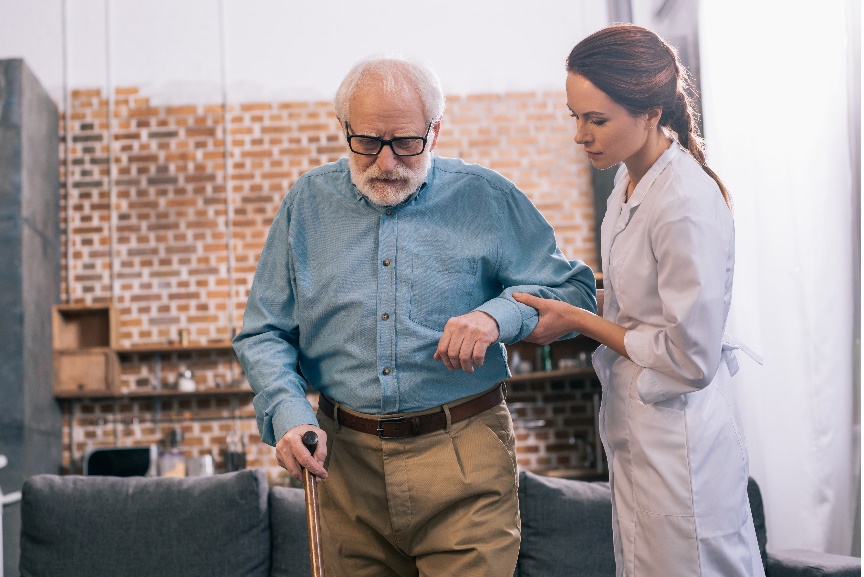
What’s Next? Palliative and Hospice Cancer Care
Families, friends, and patients can experience intense denial around the next stages of cancer care. This stage can feel very final for everyone involved. It’s easier to keep postponing painful discussions than it is to think about how the patient wants to spend their final months. And there may come a time when caregivers won’t be able to dedicate enough time to the patient’s comfort.
It’s so important to address these matters while the patient is still able to process and communicate their wishes clearly. Caregivers and patients alike can find the conversation much more difficult if they defer it. Start the discussion early, and know that measures are available to make end-of-life care as comfortable as possible for your family member.
Palliative Care
Palliative care is about relieving pain and making people with cancer as comfortable as possible. It also aims to relieve distress and maximize quality of life. While often confused with end-of-life care, palliative care can happen for any length of time and at any stage of their illness. You can start palliative care whether or not the patient has stopped receiving active cancer treatment.
A palliative cancer care team comprises medical specialists, nurses, and social workers dedicated to caring for cancer patients. They provide:
- Medical treatment
- Mental health support
- Social support
Hospice care
Hospice care involves making the end of someone’s life as comfortable as possible. It’s a sad reality that palliative care isn’t always enough to prevent a patient’s passing from cancer. Given the severe side effects of many cancer treatments, people often choose to forgo further treatment and enter hospice care, to live out their final days with maximum comfort and dignity.
In hospice care, a specialized team of doctors, nurses, mental health practitioners, massage therapists, social workers, and grief counselors help manage symptoms and reduce the patient’s pain and distress. Spiritual advisers are also available to respect and account for the patient’s religious or cultural beliefs.
Sage hospice care can help make caring for cancer-stricken loved ones as peaceful as possible during their final days, either at home or in a specialized facility. With years of experience assisting cancer patients, Sage hospice nurses are fully prepared to support your loved one and family members.
Cancer Care – Bottom Line
With cancer, the crushing truth is that pain will be inevitable for the patient and their entire family. You will likely feel the weight of the world on your shoulders — but you needn’t shoulder it alone.
Getting enough of the right cancer caregiver support is central to your loved one’s cancer journey. Nobody expects you to be unbreakable while caregiving, and taking care of yourself while doing so is tremendously important for preventing burnout. If symptoms are progressing or you feel like you can’t cope anymore, reach out for a helping hand. Leaning on friends, family, or professional services including respite care, palliative care, and hospice care can make a huge impact on the caretaker and patient alike.
Let the Sage Family guide you and the ones you love through the most uncomfortable times of your lives and beyond. We can help you so you can help them.
The Sage Family of Companies has locations in several states including: Sage Hospice, Primary and Palliative Care in Arizona, Elevation Hospice in Colorado; Elevation Hospice, Mobile Primary and Palliative Care in Utah, and Agape Hospice Care in Georgia.
For more information or to make a referral:
For the full criteria guidance on the factors influencing hospice eligibility, please contact us or see the complete LCD guide on the CMS website. You can also make a hospice referral using the contact information below.
The Sage Family of Companies provides hospice services in:
Article Resources
- 19 ways to help someone during cancer treatment. (2018)
- Cancer data and statistics. (2019)
- Home safety. (n.d.)
- If you’re about to become a cancer caregiver. (2019)
- Side effects of cancer treatment. (n.d.)
- Signs and symptoms of cancer. (2020)
- Understanding the cancer experience when you’re a caregiver. (2016)
- What to expect when a person with cancer is nearing death. (2019)

